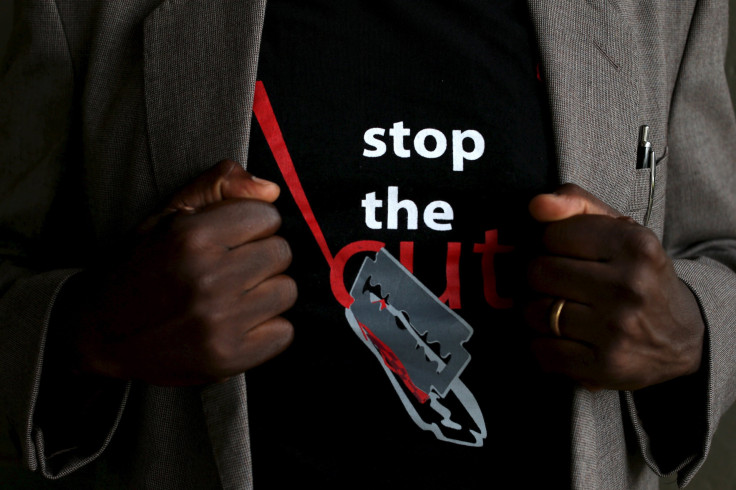Violence Against Women: Female Genital Mutilation Statistics For FGM International Awareness Day

World health leaders were renewing their calls to bring an end the practice of females being circumcised as Monday marked International Female Genital Mutilation Awareness Day. The procedure, also known as FGM, involves surgically cutting all or most of the external female genitalia for nonmedical reasons. Global groups such as the World Health Organization have deemed the operation a violation of human rights of girls and women.
There are no proven health benefits for FGM, according to United Nations Population Fund Executive Director Dr. Babatunde Osotimehin and The United Nations Children's Fund (UNICEF) Executive Director Anthony Lake. The two released a joint statement Monday on the perils of female genital mutilation.
"It irreparably damages girls' bodies, inflicting excruciating pain. It causes extreme emotional trauma that can last a lifetime," the joint statement read in part. "It increases the risk of deadly complications during pregnancy, labour and childbirth, endangering both mother and child."
The exact number of women and girls who have undergone the operation has not been documented, but several organizations have compiled various statistics surrounding the controversial practice to provide a glimpse into its prevalence.
Today is Intl Day of Zero Tolerance for Female Genital Mutilation.
— World Health Organization (WHO) (@WHO) February 6, 2017
Over 200m girls & women alive today hv undergone the procedure #EndFGM pic.twitter.com/vKb0t81mXq
Women and girls in about 30 countries have had FGM surgery, according to UNICEF. However, the vast majority of those cases were in Africa. Countries including Djibouti, Guinea and Somalia had about a 90 percent rate of women and girls there having had the surgery. Other places where FGM has been happening are the Middle East, Asia and the United Kingdom. However, FGM Statistics have only been compiled in 27 African countries and Yemen.
More than 200 million girls and women have have undergone FGM surgery, according to the World Health Organization. That figure included nearly 100 percent of those aged 15-49 in Somalia.
Female genital mutilation can cause severe bleeding & problems urinating, complications in childbirth, increased risk of newborn deaths pic.twitter.com/zzVnef4yYf
— World Health Organization (WHO) (@WHO) February 6, 2017
Nigeria banned the practice in 2015. At the time, nearly 20 million Nigerian girls and women were believed to have had the procedure done to them. Seventeen other African countries have also criminalized the act, which has been deemed a violation of human rights.
“Every study and every bit of evidence we have shows there is absolutely no benefit to mutilate or to cut any girl or woman for non-medical reasons. It is a practice that can cause severe physical and psychological harm,” Mohamed Fall, a UNICEF representative in Nigeria, told the Nigerian Tribune.
© Copyright IBTimes 2024. All rights reserved.





















